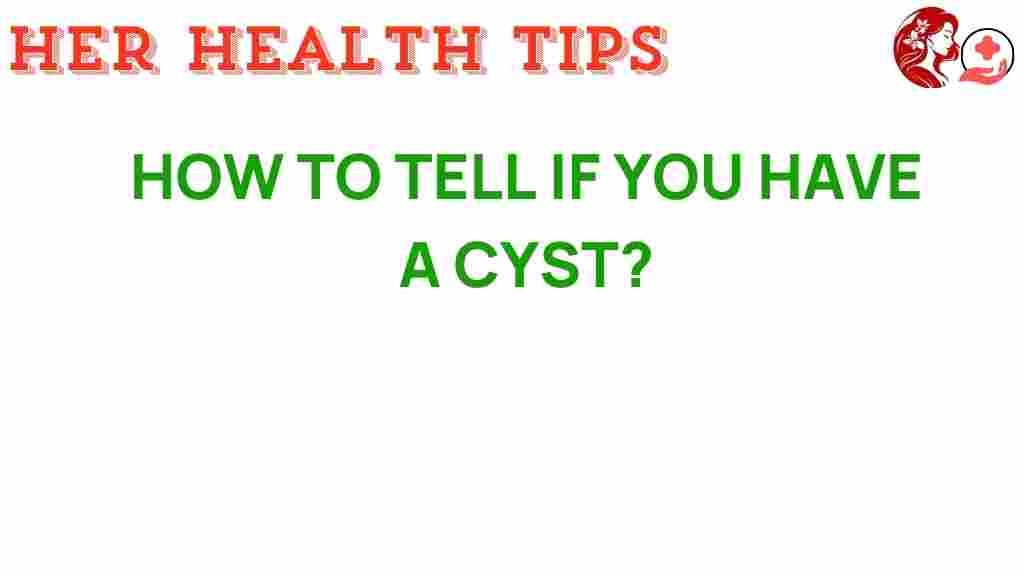Cyst Symptoms: Understanding the Indicators of Cysts
Cysts can be a source of confusion and concern for many. They are fluid-filled sacs that can develop in various parts of the body, often causing discomfort or anxiety. Recognizing cyst symptoms is essential for early diagnosis and treatment. In this article, we will explore the various symptoms associated with cysts, how they are diagnosed, treatment options, and prevention strategies. Awareness of these factors can significantly impact your health and wellness.
What Are Cysts?
A cyst is a closed sac-like structure that can be filled with fluid, semi-solid material, or gas. They can develop in almost any tissue in the body and can vary in size from microscopic to very large. While many cysts are benign and do not cause serious health issues, some can lead to complications if left untreated.
Common Types of Cysts
Understanding the type of cyst you may have can help in identifying symptoms and deciding on a course of action. Here are some common types of cysts:
- Ovarian Cysts: These form on or inside the ovaries and can cause abdominal pain or pressure.
- Sebaceous Cysts: Located just under the skin, these can appear on the face, neck, or torso.
- Baker’s Cyst: This type of cyst forms behind the knee and can cause swelling and stiffness.
- Kidney Cysts: Fluid-filled sacs that can form in the kidneys and may lead to kidney issues.
Recognizing Cyst Symptoms
Detecting cyst symptoms early can lead to timely medical intervention. Here are some common symptoms associated with various types of cysts:
General Symptoms
- Pain or Discomfort: Cysts can cause localized pain, especially if they press on nearby structures.
- Swelling: Visible swelling may occur, particularly with sebaceous or Baker’s cysts.
- Redness or Inflammation: Infected cysts may appear red and inflamed.
- Fluid Drainage: Some cysts may leak fluid or rupture, leading to drainage.
Specific Symptoms by Cyst Type
Each type of cyst can present unique symptoms:
- Ovarian Cysts: Irregular menstrual cycles, pelvic pain, or pain during intercourse.
- Sebaceous Cysts: Usually painless but can become tender or inflamed.
- Baker’s Cyst: Swelling behind the knee, stiffness, or pain when bending the knee.
- Kidney Cysts: Often asymptomatic, but may cause back pain or urinary issues if large.
Diagnosis of Cysts
If you suspect you have a cyst based on the above cyst symptoms, it’s crucial to seek medical advice. Healthcare professionals can perform several diagnostic tests to confirm the presence of a cyst:
Medical Evaluation
- Physical Examination: Your doctor will assess any visible symptoms and discuss your medical history.
- Imaging Tests: Techniques such as ultrasound, CT scans, or MRIs can provide detailed images of the cyst.
- Lab Tests: If an infection is suspected, lab tests may be conducted to analyze fluid from the cyst.
Treatment Options for Cysts
Once diagnosed, the treatment for cysts will depend on their type, size, and symptoms. Here are some common treatment strategies:
Observation
If the cyst is small and asymptomatic, your healthcare provider may recommend a watchful waiting approach. Regular monitoring can ensure the cyst does not grow or cause complications.
Medications
- Anti-inflammatory Drugs: Over-the-counter pain relief medications can help reduce discomfort.
- Antibiotics: If the cyst is infected, antibiotics may be prescribed.
Procedures
- Drainage: For larger cysts, your doctor may recommend draining the fluid.
- Surgery: In cases where cysts recur or cause significant problems, surgical removal may be necessary.
Prevention and Awareness
While not all cysts can be prevented, being aware of risk factors and maintaining good health practices can reduce the likelihood of developing cysts:
- Regular Check-ups: Regular health screenings can help identify potential issues early.
- Healthy Lifestyle: A balanced diet, regular exercise, and adequate hydration promote overall health.
- Avoiding Skin Irritation: Taking care of your skin can prevent sebaceous cysts.
When to Seek Medical Advice
It’s essential to consult a healthcare professional if you experience any of the following:
- Persistent pain or discomfort.
- Rapidly growing cysts.
- Signs of infection, such as fever or pus discharge.
- Changes in menstrual cycles or reproductive health.
Troubleshooting Tips
If you suspect you have a cyst, here are some steps to take:
- Document Symptoms: Keep a record of any symptoms you experience, including their frequency and intensity.
- Research: Educate yourself about different types of cysts and their symptoms.
- Consult a Specialist: If your primary care physician is unable to diagnose the issue, consider seeing a specialist.
Conclusion
Understanding cyst symptoms, diagnosis, treatment, and prevention is crucial for maintaining your health and wellness. Awareness of these factors empowers you to take proactive steps in managing your health. If you experience any suspicious symptoms, don’t hesitate to seek medical advice. Early intervention can lead to better health outcomes.
For more information on maintaining your health, consider visiting this resource. If you need personalized medical advice, always consult a healthcare professional.
This article is in the category Conditions and created by HerHealthTips Team
